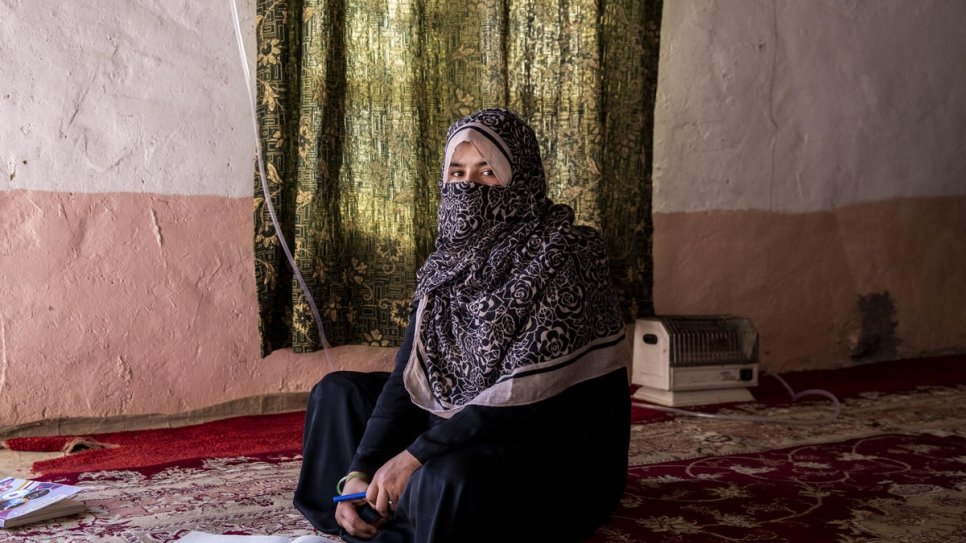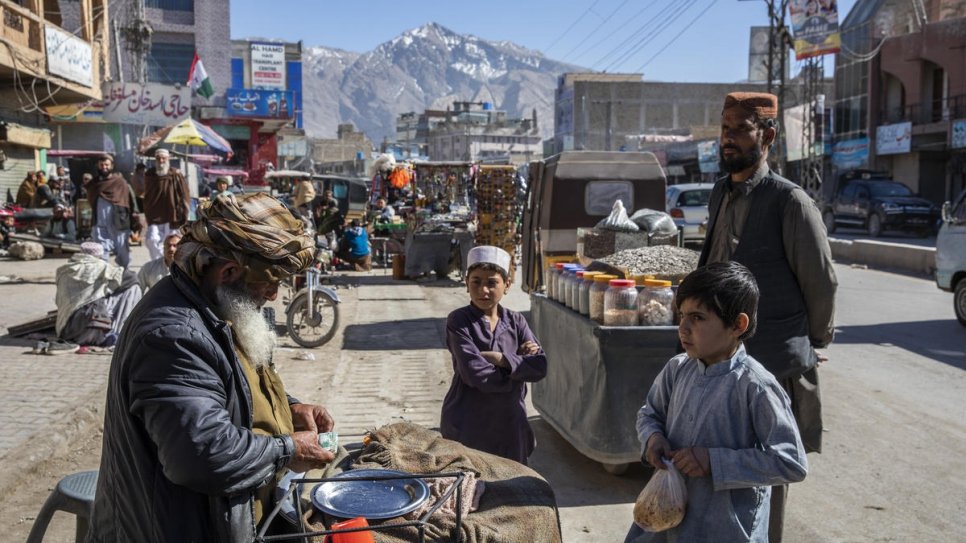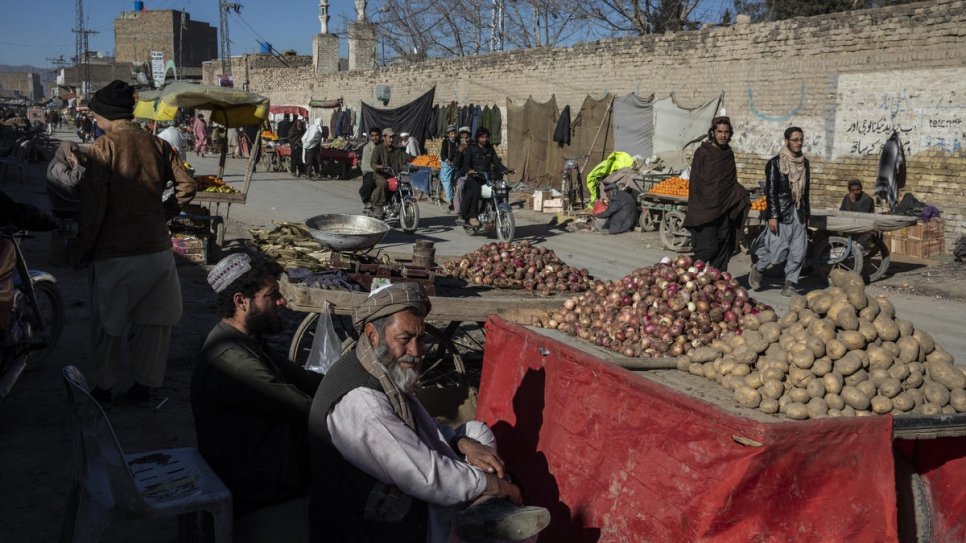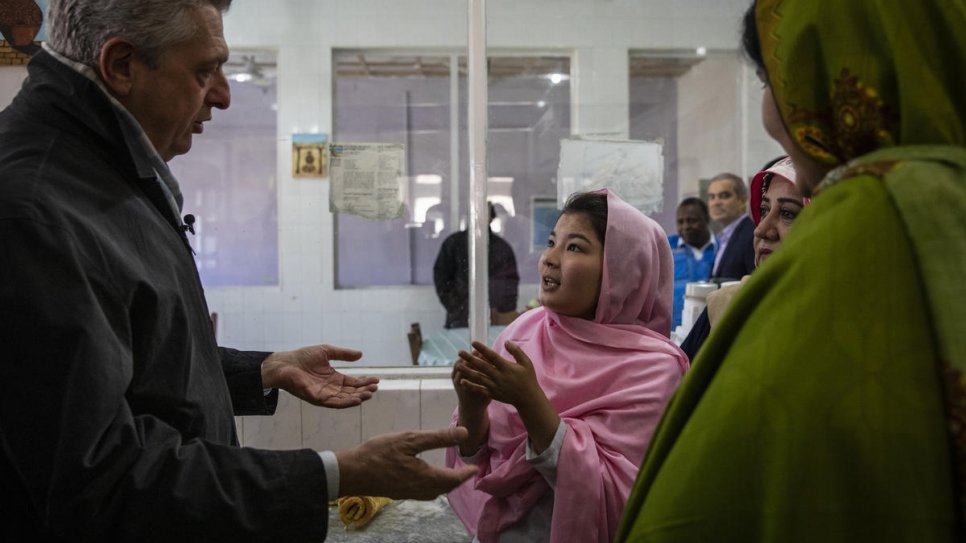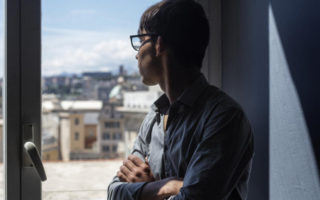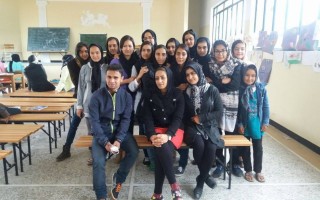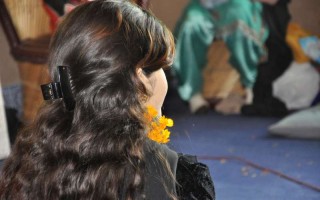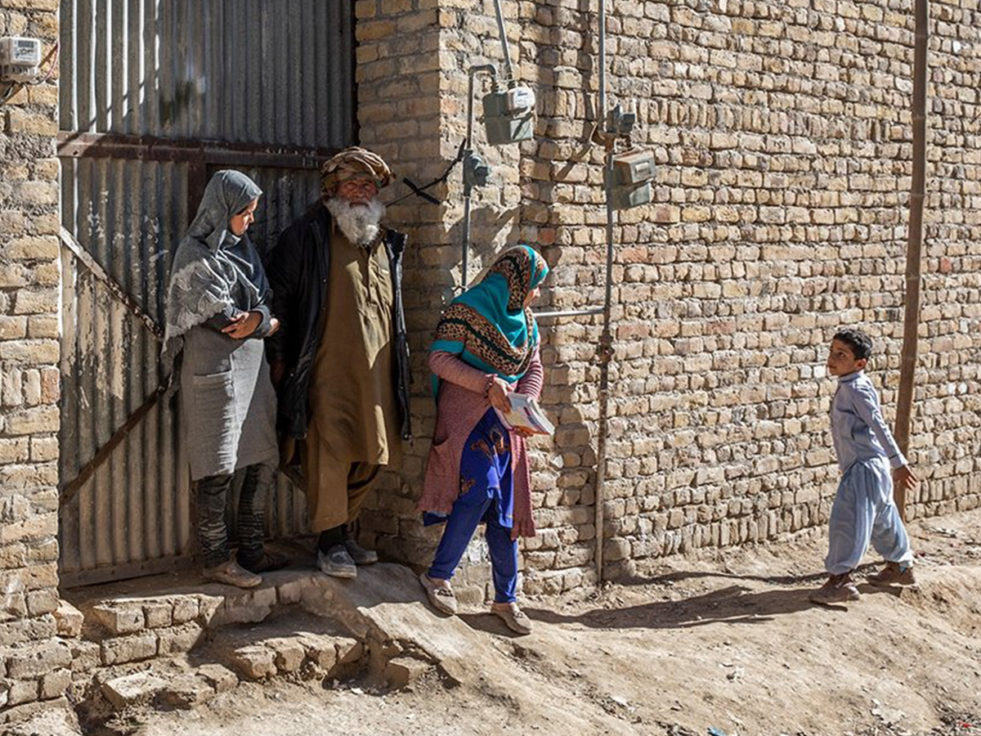
Nadia’s father, Abdul Rashid, stands outside the family’s home near Quetta, Pakistan. © UNHCR/Ivor Prickett
Forty years of conflict have trapped millions of Afghans in exile, but Nadia yearns to go home – when peace returns, and once she has the medical skills to care for her people.
By Christopher Reardon in Quetta, Pakistan
Like many teenagers the world over, Nadia Hamidi gets a thrill from watching scary movies. “Ghosts, blood, gore – I love all of it,” she says.
The fact that she’s not squeamish may come in handy one day. Now at the top of her high school class here, she dreams of becoming a surgeon – “to help my family, to help my country, to make them better.”
Now 17, Nadia was born a refugee. Her parents fled Afghanistan 40 years ago, around the time of the Soviet invasion, and the family have lived in Pakistan ever since.
Nadia is among some 2.7 million Afghans registered as refugees worldwide. Their needs, and those of the communities hosting them, are the focus of a two-day conference that kicks off Monday in Pakistan’s capital, Islamabad. Speakers include UN Secretary-General António Guterres, Pakistan Prime Minister Imran Khan and UN High Commissioner for Refugees Filippo Grandi.
For decades now, Pakistan and Iran – which together host 90 per cent of the world’s Afghan refugees – have let refugees attend public schools and access national health-care systems. The conference aims to generate more international solidarity and support for such efforts, as well as more support for host communities like Quetta.
Nadia plans to return to Afghanistan someday, but not just yet. First, she says, her country needs peace. And until then, she is intent on studying medicine so she can help it rebuild when the time comes.
“In Afghanistan we need educated people,” she says. “If we don’t have educated people, we won’t improve ourselves, and we won’t improve our country.”
This weekend Nadia and her father, Abdul Rashid, who is in his early 70s, had a chance to meet the High Commissioner when he visited Balochistan ahead of the conference.
Speaking in English, a language she learned by watching television, she told him about her high school, where she’s a star student, as well as the computer classes she takes at Safe for the Start, a programme for women and girls that is supported by UNHCR, the UN Refugee Agency.
Nadia knows her path will be challenging, as a refugee and as a woman, but she doesn’t scare easily. “If I want something, I have to work hard,” she says. “I should forget the difficulties because I want to become something.”
“If I want something, I have to work hard.”
In Quetta, the High Commissioner also met with several groups of Afghans and Pakistanis, including women from both nations taking courses together in rug making, embroidery, cooking and hair care. Among the refugees, a hunger for more educational opportunities, particularly at university level, was a recurring theme.
On the question of return, the primary obstacle is insecurity. “I’m getting an education so I can go back to Afghanistan,” said Mehbooba, a 19-year-old refugee who was born here. “If the situation becomes stable, then I will definitely go back.”
That Nadia and Mehbooba have come so far is a tribute to their families, and to the education they have received thus far.
“I want to commend Pakistan for these efforts, which are always difficult for an asylum country,” Grandi said, “and really encourage the international community to do more to share this burden and this responsibility with the Pakistani people.”
Nadia’s father would also like to return to Afghanistan, a country he misses dearly.
“The whole place is beautiful,” he says, grateful that he’s had a chance to visit his brother in Kunduz a few times in recent years. But continued violence and economic hardships have kept him from staying long. “I cannot afford to go back and settle in that region. When you don’t have enough food to eat, you’re thankful for just one meal.”
In Quetta, at least, he has been able to eke out a living. Each morning, he sets out with a cart of qabli – an Afghan dish made with rice, chicken, raisins and cumin – to sell on the street. He returns home late in the evening, weary from a slipped disc and a sore foot.
“It’s up to Nadia if she wants to become a doctor,” he says. “That’s her choice. But we are happy for her to become a doctor so she can build her own life.”
He adds: “I’m doing my best to help her take her studies forward. It’s an achievement for both of us.”
For now, Nadia has a plan to keep studying and working towards her dream of becoming a doctor. But the idea of settling down in Afghanistan is never far from her thoughts.
“If peace comes, there is no more beautiful place than your own country,” she says.



